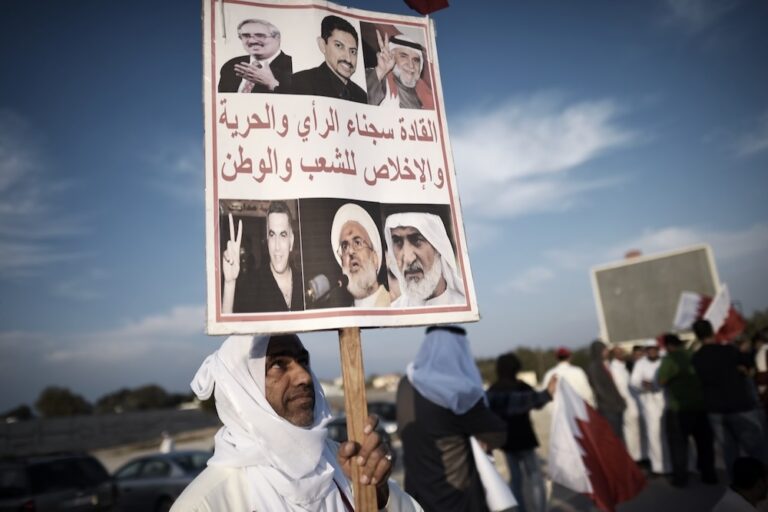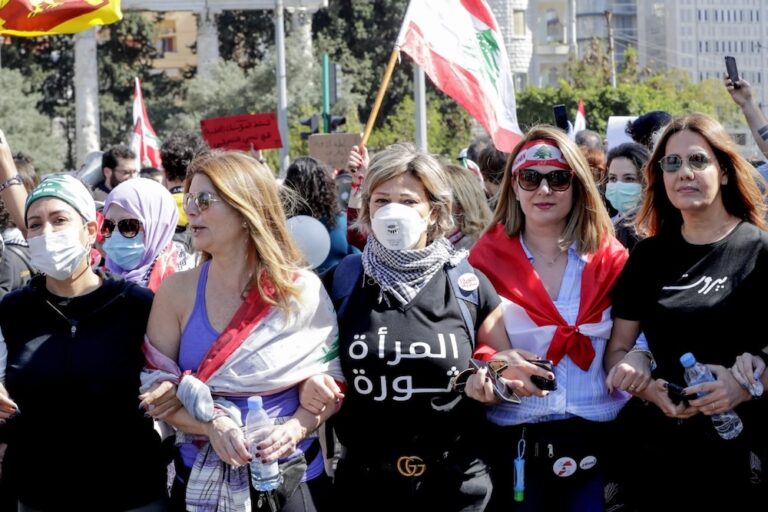(CIHRS/IFEX) – The following is a 22 December 2008 CIHRS press release: How did Arab governments commemorate the 60th anniversary of the Universal Declaration of Human Rights? It was hoped that on the occasion of the 60th anniversary of the Universal Declaration of Human Rights, the Arab region would see steps showing a readiness to […]
(CIHRS/IFEX) – The following is a 22 December 2008 CIHRS press release:
How did Arab governments commemorate the 60th anniversary of the Universal Declaration of Human Rights?
It was hoped that on the occasion of the 60th anniversary of the Universal Declaration of Human Rights, the Arab region would see steps showing a readiness to improve the human rights situation. Unfortunately, even in the shadow of this celebration, measures have been taken all over the region, with the exception of Morocco, that show utter contempt for the values of human rights and the international mechanisms set up to protect them.
In Tunisia, on Dececmber 11, the day after the anniversary, a primary court in Gafsa handed down severe sentences to several activists who were detained against the backdrop of the social protest movement in the Mine Basin area. Prison sentences ranging from seven to ten years were issued to defendants, among them prominent trade unionists Adnan Hajji and Bachir Labidi, whom the Cairo Institute for Human Rights Studies (CIHRS) named in its first Annual Report for the year 2008 as the most prominent prisoners of conscience and victims of unfair trials in Tunisia. Trade union activist Mohi Eldinne El Sherib, who is currently residing in France, was also convicted by the same court for his support for the above-mentioned protest. According to the Tunisian League for Human Rights, the trials lacked any semblance of fairness: the charges were not read out to the defendants; they were not questioned; attorneys were unable to offer a defense; and the court rejected the defense’s requests to postpone the trial to allow it time to prepare its case, call defense witnesses, or have the defendants examined by a doctor to document the torture they endured.
On December 15, an Emergency High State Security Court in Egypt handed down prison sentences ranging from three to five years for 22 people who had taken part in labor demonstrations in Mahalla al-Kubra that accompanied calls for a general strike on April 6; the demonstrations were quashed and two people were killed. According to a report by the Egyptian Organization for Human Rights, defendants in the case were deprived of their right to appear before a normal tribunal and denied the right to have their conviction reviewed by a higher court. The court also ignored the fact that some confessions were extracted under torture.
In Syria, which holds the number one spot in the Arab world for imprisoning advocates of reform, democracy, and human rights, the general panel of the Court of Cassation on December 15 overturned a previous court’s ruling releasing writer Michel Kilo and activist Mahmoud Issa, who have served three-quarters of their sentences in prison. Michel Kilo, the president of the Center for Press Freedoms and a member of several civil society committees in Syria, and Mahmoud Issa were arrested in 2006 after signing the Beirut-Damascus Declaration calling for a Syrian-Lebanese rapprochement. A criminal court sentenced them to three years in prison on charges of weakening national morale.
Also in mid-December, attacks on civilians by pro-government tribesmen continued in Darfur, the Sudan, and the surrounding areas, taking the lives of 250 people.
The reprehensible state of human rights in the region was further illustrated when, on December 14, the Israeli occupation authorities refused to allow Richard Falk, the UN Special Rapporteur on the situation of human rights in the Palestinian Territory, to enter the occupied Palestinian territories on a fact-finding mission. He was detained at the Ben-Gurion airport for nearly 20 hours before being deported. The measure came even as the occupation authorities continue to impose collective punishment on the Palestinians and deprive them of the most basic elements of life. At the same time, Palestinians were prohibited from leaving the country for the pilgrimage due to the bloody internal conflict between Hamas and Fath. It should be noted that, in the Arab Region, most Arab governments still deny access to UN human rights special rapporteurs.
Perhaps the only exception to this deplorable pattern is Morocco’s official declaration to withdraw all its reservations to the Convention on the Elimination of all forms of Discrimination Against Women and thus cease using the tenets of Islamic sharia’a as a pretext to undermine women’s rights in the Arab region. This only goes to show that human rights problems in the Arab Region are largely attributable to the lack of political will on the part of Middle Eastern governments – a fact illustrated in the CIHRS’s Annual Report on the Human Rights Situation in the Arab region, issued only days ago:
Arabic (full version): http://www.cihrs.org/Arabic/NewsSystem/Articles/548
English (synopsis): http://www.cihrs.org/english/newssystem/details.aspx?id=548


